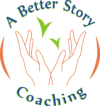Burn·out (noun)
The International Classification of Diseases 11 edition (ICD 11) defines burnout as a syndrome (not a disease, used only in the occupational context) resulting from chronic workplace stress that has not been successfully managed.
With the Great Resignation, many individuals today must manage the pressure of hiring and training the right people while carrying the workload in understaffed organizations. There is a general feeling of exhaustion. In addition, due to the pandemic, the burnout rates in certain industries have seriously escalated in the last two years. Yet, burnout and exhaustion look very different. You can work on fatigue by using self-care strategies or taking a nice vacation. Because the sources of burnout are both organizational and personal, identifying and recuperating from it must be a collective effort. The first time I experienced burnout, I left my job feeling defeated and demoralized. Unfortunately, when I stepped into a new role at a new workplace, I was still carrying all that emotional burden with me. It was not long before I was falling into the same pattern, but the symptoms were escalating this time. I experienced trouble breathing, heart palpitations, and a general sense of anxiety that interrupted my daily non-work activities.
Burnout is challenging to detect because, in part, it is subjective to each person’s perception of their ability to manage their job. As per the ICD 11 definition, “it is characterized by feelings of energy depletion, feelings of negativism or cynicism towards one’s job, and a sense of decreased professional efficacy.” In the long term, the consequences of unattended burnout can lead to results that range from extreme stress, fatigue, irritability, sadness, insomnia, substance overuse, vulnerability to getting sick, and long-term consequences like depression and anxiety. The earliest research on the issue came from the fields of psychology, social services, and healthcare because these job environments tend to be defined by selflessness and prioritizing the needs of others first. Also, because of their missions and the manner they are funded, these industries are characterized by high demands and limited resources. According to the article “Understanding the burnout experience: recent research and its implications for psychiatry” (Maslach & Leiter, 2016), different test models have been developed to measure the burnout experience. As the models have changed, also the understanding of causes for it has broadened. Today, there are six known factors across industries that determine the risk of burnout in an organization: work overload, autonomy, reward, community, fairness, and values. (for an extended description for each of these factors check out my article published in Brainz Magazine.)
Although it is essential for companies to keep a close watch on these six factors, it is important to acknowledge the significance of personal responsibility on well-being. Self-regulation and maintaining consistency on boundaries rests on the individual. For example, a good boundary to have is not to work during vacation. Nevertheless, if I decide to answer emails during a time that should be dedicated to rest, I cannot make others responsible for replying and make it seem that I never get time off. I have talked to many people who believe they have no choice. However, the truth is that most of the time there is a choice, but we have a hard time seeing it. The same way technology seems to have tied us to be in communication all the time, there are plenty of tools to help manage external expectations. Nevertheless, there are no apps that will help us change our mindsets and habits. We need to do the internal work so that we feel engaged and satisfied at work.
As I mentioned in the beginning, the second time I suffered burnout, a lot of that was created by feelings and habits that I had carried from my previous job. Fortunately, I was able to work with an excellent cognitive behavioral therapist on setting boundaries and creating habits that helped me maintain a sense of control. I was also able to clarify my personal goals and how they aligned with my job. I have since then found my best role fit within the organization based on my abilities and values. My level of engagement and happiness at work has increased exponentially.
For more information, you can contact Ivonne at info@abetterstorycoaching.com
